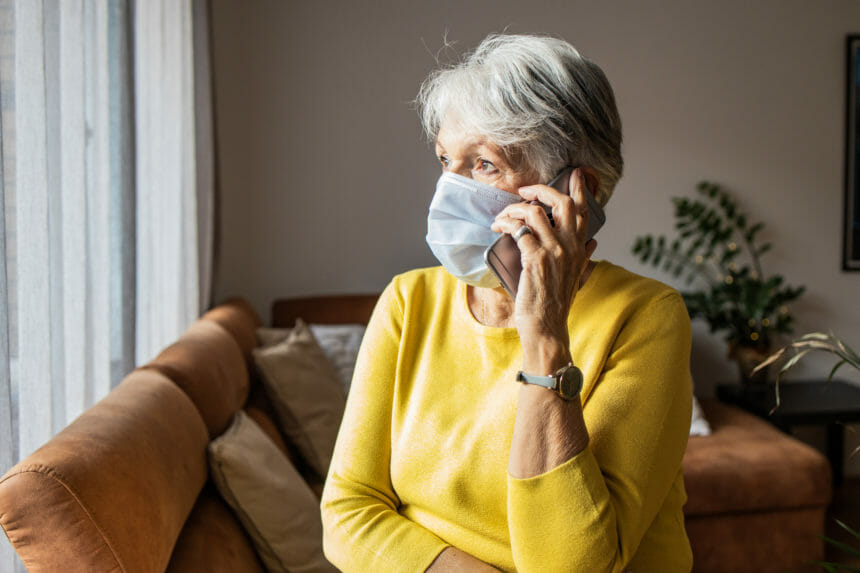
Pandemic mitigation measures are thought to have exacerbated feelings of isolation and loneliness among older adults. A new study, which compared loneliness levels before and after the introduction of social restrictions among people aged 75 years and older, confirmed that theory.
Investigators analyzed participant data from two studies from the United Kingdom, the Wave 3 of the Cognitive Function and Aging Study II (from 2018 to 2019) and a sub-study focusing on pandemic experiences from 2020.
Following the introduction of COVID-19 social distancing restrictions, loneliness among a cohort of 379 study participants rose from 17% to 25%. Factors that increased risk included prior loneliness, separation from family during the pandemic, living alone, female gender, living in an area of higher deprivation, and frequent pre-pandemic social contact at community groups.
Notably, weekly technology-facilitated contact using telephone or video calls was linked to lower odds of loneliness, reported Carol Brayne, MD, of the University of Cambridge in the U.K.
However, despite the impact of the pandemic, the prevalence estimates found in this study “are not substantially higher than typical loneliness estimates,” Brayne and colleagues wrote. One reason for this may be that there already has been an “epidemic of loneliness” for quite some time prior to the pandemic, they theorized.
“COVID-19 recovery plans should address loneliness in older people,” with target groups including those at greatest risk, they concluded.
The study was published in the Journal of the American Geriatrics Society.
Related articles:
Pandemic has taken significant toll on patients with dementia, geriatricians say
Conversations needed: Social distancing more damaging for some residents
‘We will not go back’ to early pandemic restriction, CMS leader says




